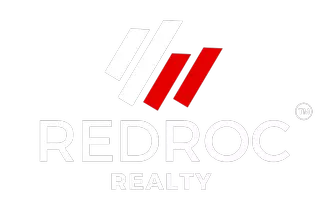Blog > Zombie Homes Are Creeping Back in 2025 — Here’s What Buyers Should Know
Zombie Homes Are Creeping Back in 2025 — Here’s What Buyers Should Know
by
The term “zombie home” sounds like something out of a Netflix thriller — but it’s very real, and it’s making headlines in 2025.
According to ATTOM’s latest Zombie Foreclosure Report, abandoned homes caught in foreclosure limbo are quietly on the rise. While numbers remain modest compared to the 2008 crisis, this trend is gaining attention among buyers, investors, and city officials alike.
So what’s happening? And should buyers be worried — or excited?
🧠 What Is a Zombie Foreclosure?
A zombie foreclosure occurs when a homeowner defaults on their mortgage and leaves before the foreclosure process is complete. The property sits vacant — sometimes for years — while ownership hasn’t legally transferred back to the bank.
This creates:
- Deterioration from neglect and weather
- Legal limbo where banks don’t fully own it yet
- Neighborhood impact, lowering nearby values
In short: a house that becomes a ghost on the block.
📊 Why Are Zombie Homes Increasing in 2025?
While not a foreclosure “wave,” these factors are fueling the uptick:
- Pandemic-Era Forbearance Fallout → Homeowners exiting deferral programs are struggling to catch up.
- Insurance & Maintenance Costs → Rising premiums in states like Florida make some homes unaffordable.
- Court Delays → Sluggish foreclosure timelines leave homes in limbo longer.
⚠️ Challenges Buyers Face With Zombie Homes
Zombie homes are not typical transactions. Key risks include:
|
Challenge |
Why It Matters |
|
Legal Ambiguity |
Ownership may be unresolved, complicating purchases. |
|
Physical Deterioration |
Vacant homes often suffer damage, vandalism, or squatters. |
|
Hidden Liens/Taxes |
Unpaid bills or municipal fines may carry over. |
|
Financing Barriers |
Many lenders won’t finance distressed/vacant homes. |
💡 Where the Opportunities Are
For the right buyer, zombie homes can be hidden gems:
- Often priced well below market value
- Cities sometimes offer incentives to rehab and stabilize neighborhoods
- Ideal for cash buyers and experienced flippers comfortable with risk
Pro tip: always bring a contractor and confirm ownership status before making offers.
🌴 Zombie Homes in Florida: What We’re Seeing
In Florida — especially in Miami Beach, Broward, and Palm Beach — zombie homes are rare but impactful. A single abandoned property can weigh down luxury neighborhoods, frustrating both residents and local governments.
At RedRoc Realty, we track foreclosure-adjacent and off-market properties. For buyers willing to get creative, these listings can be an opportunity — but they require strategy and expert guidance.
✅ The Bottom Line
Zombie foreclosures don’t signal a crash, but they highlight the pressure points of today’s market: rising costs, lender delays, and affordability struggles.
For first-time buyers, cash investors, or fix-and-flip pros, zombie homes might represent value — if approached carefully.
At RedRoc Realty, we help you separate the scary from the smart.
📞 Talk Strategy With RedRoc Realty
Seen a distressed property in your neighborhood? Thinking about exploring foreclosure deals?
📲 Call or text: 786-898-0476
🌐 Visit: redrocrealty.com
📧 Email: info@redrocrealty.com
📚 Sources & Further Reading
- ATTOM – Zombie Foreclosure Report Q2 2025
- World Property Journal – Zombie Foreclosures Creeping Back in 2025
- Florida Realtors – Foreclosure Trends & Housing Data
- U.S. CFPB – Mortgage Forbearance & Foreclosure Rules
📖 Glossary
- Zombie Foreclosure: A home abandoned by owners before foreclosure is legally complete.
- Forbearance: Temporary suspension of mortgage payments (common during COVID).
- Lien: A legal claim on a property due to unpaid debts.
- Vacant Property Registration: Local laws requiring reporting of abandoned homes.
⚠️ Disclaimer
This blog is for informational purposes only. Market conditions and foreclosure laws vary by state and municipality. Always consult a licensed real estate professional and legal advisor before pursuing distressed property investments.
